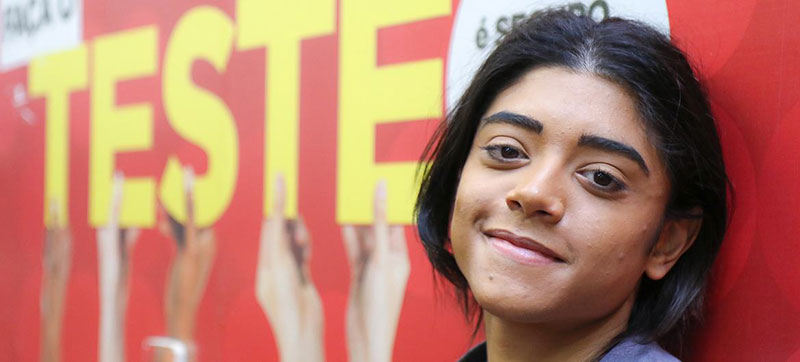 HIV
HIV
Gamechanger HIV injection rolls out in South Africa and Brazil
New York: The first injection to offer long-lasting protection against HIV is being rolled out in South Africa and Brazil, as an alternative to daily medication, according to the UN agency UNITAID.
Hosted by the World Health Organization (WHO), UNITAID announced the groundbreaking development on Friday, which it is hoped will boost HIV prevention worldwide.
Developed by ViiV Healthcare and approved by the US health authority, the injection, whose active ingredient is cabotegravir, offers two months of protection against HIV.
This news is a game changer. Unitaid is funding the implementation in South Africa and Brazil of an injectable version of pre-exposure prophylaxis, the latest innovation in HIV prevention.
"But we need urgent action to ensure people everywhere can benefit,” said UNITAID Executive Director Philippe Duneton.
More viable option
Like other HIV treatments, the anti-retroviral medication works by stopping the virus from replicating in the body, effectively reducing the viral load.
Although existing oral medication – known as “oral pre-exposure prophylaxis,” or oral PrEP – can prevent HIV in 99 per cent of cases, uptake has been slow and targets to reduce new infections have been missed.
This is often because people with HIV fear stigma, discrimination or intimate partner violence if they take the pill every day, said UNITAID spokesperson Herve Verhoosel.
“Long-acting PrEP could have a game-changing impact, improving choice and making HIV prevention a more viable option for more people,” he told journalists in Geneva.
However, cautioned Mr. Verhoosel, the high cost of the injection – believed to be around $20,000 a year for wealthy nations – would be prohibitive elsewhere, so “adequate and affordable supply must be ensured so people everywhere can benefit without delay.”
Piloting countries
In Brazil, UNITAID is supporting long-acting cabotegravir injections among transgender communities – 30 per cent of whom live with HIV – and men who have sex with men (18 per cent).
In South Africa, the target population is adolescent girls and young women, who are infected “at a disproportionately high rate,” the UN agency said.
“In sub-Saharan Africa, six in seven new HIV infections in adolescents occur among girls, and young women are twice as likely to be living with HIV as their male peers,” UNITAID added.
HIV decriminalization
In a related development on Friday, UNAIDS congratulated Zimbabwe for decriminalizing HIV transmission.
“Public health goals are not served by denying people their individual rights and I commend Zimbabwe for taking this hugely important step,” said UNAIDS Executive Director, Winnie Byanyima.
“This decision strengthens the HIV response in Zimbabwe by reducing the stigma and discrimination that too often prevents vulnerable groups of people from receiving HIV prevention, care and treatment services.”
Ms. Byanyima’s comments followed the Zimbabwean Parliament’s decision to repeal section 79 of the Criminal Law Code on HIV transmission.
In its place President Emmerson Mnangagwa is expected to sign into law a new marriage bill adopted by Parliament.
Making strides
According to UNAIDS, over the past decade Zimbabwe has made great progress in its response to HIV.
It is estimated that 1.2 million of the 1.3 million people living with HIV in the country are now on life-saving medicines.
Moreover, AIDS-related deaths have decreased by 63 per cent since 2010, with new HIV infections down by 66 per cent over the same period.
Support Our Journalism
We cannot do without you.. your contribution supports unbiased journalism
IBNS is not driven by any ism- not wokeism, not racism, not skewed secularism, not hyper right-wing or left liberal ideals, nor by any hardline religious beliefs or hyper nationalism. We want to serve you good old objective news, as they are. We do not judge or preach. We let people decide for themselves. We only try to present factual and well-sourced news.






